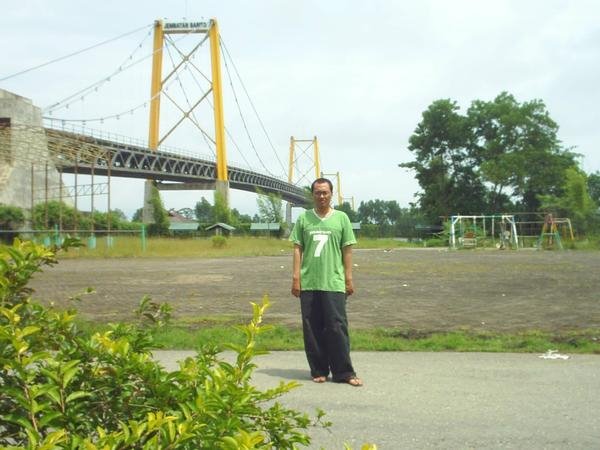Friday, April 27, 2012
Online Computer Library Center
From Wikipedia, the free encyclopedia
Jump to: navigation, search
Online Computer Library Center OCLC logo.svg
Type Nonprofit membership cooperative
Founded 1967 (1967)
Headquarters Dublin, Ohio, United States
Area served Worldwide
Key people Robert L. (Jay) Jordan, President and CEO
Industry Library services
Products WorldCat, FirstSearch, Dewey Decimal Classification, VDX, WebJunction, QuestionPoint
Members Over 72,000 libraries, archives and museums in 170 countries[1]
Website www.oclc.org
OCLC Online Computer Library Center, Inc. (OCLC) is "a nonprofit, membership, computer library service and research organization dedicated to the public purposes of furthering access to the world’s information and reducing information costs".[2] Founded in 1967 as the Ohio College Library Center, OCLC and its member libraries cooperatively produce and maintain WorldCat, the largest online public access catalog (OPAC) in the world.
Contents
[hide]
* 1 History
* 2 Services
* 3 Online database
* 4 Regional service providers
* 5 Company acquisitions
* 6 See also
* 7 References
* 8 External links
[edit] History
It was incorporated on July 6, 1967 as the not-for-profit Ohio College Library Center.[3] More than 72,000 libraries in 170 countries and territories use OCLC services to locate, acquire, catalog, lend and preserve library materials.[4] The organization was founded by Fred Kilgour, and its head office is located in Dublin, Ohio, U.S.
[edit] Services
OCLC provides bibliographic, abstract and full-text information to anyone.
OCLC and its member libraries cooperatively produce and maintain WorldCat—the OCLC Online Union Catalog, the largest online public access catalog (OPAC) in the world. WorldCat has holding records from public and private libraries worldwide. The Open WorldCat program makes records of library-owned materials in OCLC's WorldCat database available to Web users on popular Internet search, bibliographic, and bookselling sites. In October 2005, the OCLC technical staff began a wiki project allowing readers to add commentary and structured-field information associated with any WorldCat record.
Until August 2009, when it was sold to Backstage Library Works, OCLC owned a preservation microfilm and digitization operation called the OCLC Preservation Service Center, with its principal office in Bethlehem, Pennsylvania, U.S.
[edit] Online database
OCLC has a database for cataloging and searching purposes which is used by librarians and the public. The current computer program, Connexion, was introduced in 2001, and its predecessor, OCLC Passport, was phased out in May 2005.
This database contains records in MAchine Readable Cataloging (MARC) format contributed by library catalogers worldwide who use OCLC as a cataloging tool. These MARC format records are then downloaded into the libraries' local catalog systems. This allows libraries to find and download records for materials to add to their local catalog without the lengthy process of cataloging each individually.
As of February 2007, their database contained over 1.1 billion cataloged items. It is the world's largest bibliographic database. Connexion is available to professional librarians as a computer program or on the web at connexion.oclc.org.
WorldCat is available to the public for searching a web-based service called FirstSearch, as well as through the Open WorldCat program.
The Online Computer Library Center acquired the trademark and copyrights associated with the Dewey Decimal Classification System when it bought Forest Press in 1988.
WebJunction is a division of OCLC funded by a grant from the Bill and Melinda Gates Foundation.
QuestionPoint reference management service provides libraries with tools to communicate with users. This around-the-clock reference service is provided by a cooperative of participating global libraries.
[edit] Regional service providers
Regional service providers contract with OCLC to provide support and training for OCLC services. This chart represents only OCLC services.
Name Region Website
Amigos Library Services Arizona, Arkansas, New Mexico, Oklahoma, Texas www.amigos.org
Bibliographical Center for Research Alaska, Colorado, Idaho, Iowa, Kansas, Montana, Nevada, Oregon, Utah, Washington, Wyoming www.bcr.org
ILLINET Illinois www.cyberdriveillinois.com/departments/library/who_we_are/OCLC/home.html
MINITEX Library Information Network Minnesota, North Dakota, South Dakota www.minitex.umn.edu
MCLS (Midwest Collaborative for Library Services) Indiana, Michigan www.mlcnet.org
MLNC (Missouri Library Network Corporation) Missouri www.mcls.org
NEBASE Nebraska www.nlc.state.ne.us/netserv/nebase/nebserv.html
NELINET Connecticut, Maine, Massachusetts, New Hampshire, Rhode Island, Vermont www.nelinet.net
Nylink New York nylink.org
OHIONET Ohio, West Virginia, Western Pennsylvania www.ohionet.org
PALINET Delaware, Maryland, New Jersey, Pennsylvania, West Virginia www.palinet.org/
LYRASIS Alabama, Florida, Georgia, Kentucky, Louisiana, Mississippi, North Carolina, South Carolina, Tennessee, Virginia, Caribbean www.lyrasis.org
WILS Wisconsin www.wils.wisc.edu/
FEDLINK U.S. Federal Libraries www.loc.gov/flicc/
OCLC service centers
OCLC Eastern Service Center Washington D.C., Maryland and Virginia
OCLC Western Service Center Alaska, California, Hawaii, Idaho, Montana, Oregon, Washington and Guam
OCLC Asia Pacific
OCLC Canada
OCLC Latin America
OCLC PICA (OCLC Europe, Middle East and Africa)
[edit] Company acquisitions
OCLC acquired NetLibrary, the largest electronic content provider,[citation needed] in 2002 and sold it in 2010 to EBSCO Industries.[5] OCLC owns 100% of the shares of OCLC PICA, a library automation systems and services company which has its headquarters in Leiden in the Netherlands and which was renamed "OCLC" at the end of 2007.[6] In June 2006, the Research Libraries Group (RLG) merged into OCLC. On January 11, 2008, OCLC announced[7] that it had purchased EZproxy. It has also acquired OAIster. The process started in January 2009 and from 31 October 2009, OAIster records are freely available via WorldCat.org.
Subscribe to:
Post Comments (Atom)







No comments:
Post a Comment